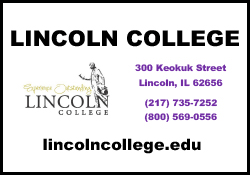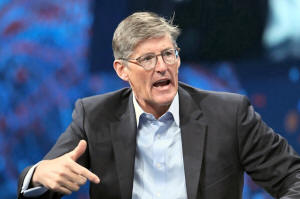|
Benefit of Trump tax cuts overshadowed by
technology and misplaced policies: Milken conference speakers
 Send a link to a friend
Send a link to a friend
 [May 01, 2018]
By Liana B. Baker and Anna Irrera [May 01, 2018]
By Liana B. Baker and Anna Irrera
LOS ANGELES (Reuters) - The windfall gains
from the tax cuts passed by the U.S. Congress in December have brought
back "animal spirits" that encourage risk-taking throughout corporate
America, according to some of the participants at the annual Milken
Institute Global Conference in California on Monday.
“Tax reform in the United States has led to, frankly, a number of
companies flush with cash and looking for their opportunity to use their
balance sheets to affect significant change in their market places as
exhibited by two of the big mergers in telecom and energy announced” in
the last 24 hours, Robert Smith, founder and CEO of private equity firm
Vista Equity Partners, said at a panel discussion.
Late Sunday, T-Mobile US Inc and Sprint Corp said they had agreed to a
$26 billion all-stock merger and believed they could win over skeptical
U.S. regulators because the merger would create thousands of jobs and
help the United States beat China in creating the 5G next generation
mobile phone network.

Also on Monday, Marathon Petroleum Corp agreed to buy rival Andeavor for
more than $23 billion in the largest-ever tie-up between U.S. oil
refiners, giving the combined company a nationwide presence and
increased access to growing export markets.
Michael Corbat, the chief executive officer of Citigroup Inc, was also
positive about the economic outlook and said the Trump tax cuts have yet
to filter through to many businesses.
“The benefits of tax reform aren't yet fully into our economy. Not yet
fully appreciated in terms of the intermediate impact they can have,” he
said.
U.S. Representative Kevin McCarthy, the leader of the
Republican-majority in the House, said the tax cut bill has been a huge
boost for Americans.
"We’ve watched the growth of America expand. People are talking about
3.0 percent growth, we haven’t seen that in quite some time," McCarthy
said, adding that Americans have received pay raises and bonuses.
However, rapidly changing technology is providing challenges for many
U.S. businesses and may be driving populist political policies which are
undermining the business confidence generated by the U.S. tax cuts,
conference speakers said.
Jim McCaughan, chief executive officer at Principal Global Investors,
said technological advances are resulting in poor job prospects for some
of the world’s population, but politicians are in denial about this and
are mistakenly blaming immigration and free trade. As result, the onus
is on business leaders to re-train workers, he said.

[to top of second column]
|

Michael Corbat, CEO of Citigroup, speaks at the Milken Institute's
21st Global Conference in Beverly Hills, California, U.S. April 30,
2018. REUTERS/Lucy Nicholson

People “feel angry in part because the reason for their displacement
and the lack of good job prospects isn’t the foreigner, the trade,
the immigrant, it’s actually technology. And that is why re-skilling
is so important", he said.
One example of the uncertainty created for U.S. business by
misplaced policies is President Trump's tariffs on imported steel
and aluminum. The exemptions from the tariffs for some countries
expire on Tuesday, but it was still not clear on Monday which U.S.
allies would get their exemptions renewed.
The uncertainty resulting from technological changes is also making
it hard for chief executives to plan ahead, Vista's Smith added.
“It’s pretty reasonable to project a strategy for the next 12 months
but frankly when you start talking about three to five years, it
gets really murky really fast," he said.
"CEOs are expected to not only understand technologies that didn’t
exist one or two years ago but to make strategic decisions as to
which investments to make, and the pace of these changes have
staggering consequences if you get it wrong," he said.
"The CEOs I talk to have never been more excited and never been more
paranoid at the same time," Smith said.

Another concern for businesses is rising U.S. interest rates.
Scott Minerd, global chief investment officer at Guggenheim
Partners, warned that Trump’s tax cuts could trigger more interest
rate hikes by the Federal Reserve. “We are coming in the United
States to a point where the stimulus and fiscal policy put in place
in Washington is colliding with monetary policy.”
Minerd said: “Volatility is going to pick up.”
(Additional reporting by Lawrence Delevingne; Edited by Jennifer
Ablan and Clive McKeef)
[© 2018 Thomson Reuters. All rights
reserved.]
Copyright 2018 Reuters. All rights reserved. This material may not be published,
broadcast, rewritten or redistributed.
Thompson Reuters is solely responsible for this content. |